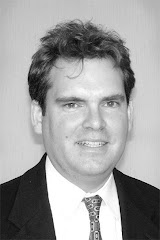STATEMENT OF SENATOR TOM HARKIN (D-IA) ON MEETING WITH E.U. Trade Commissioner Peter Mandelson
“I appreciated having the opportunity to meet with the EU Trade Commissioner Peter Mandelson today to discuss how countries can find a way to resume World Trade Organization’s (WTO) Doha Round negotiations.”
“Obviously, the U.S. and EU are key players in the World Trade Organization, and the gap between their positions in agricultural negotiations was a significant factor in the suspension of the WTO’s Doha Round talks last July. Mr. Mandelson’s visit to Washington this week is part of his effort to understand and hopefully bridge that gap.
“There is one thing that I want to make sure that Commissioner Mandelson understands. In its agricultural proposal in 2005, the United States offered to make significant reductions in trade-distorting domestic support programs if other countries would make comparable concessions on export subsidies and market access. If adopted as part of a Doha Round Agreement, the proposed cuts in domestic support programs would in fact require Congress to make significant changes in U.S. farm programs. So it is essential, and no more than fair, that Europe and other countries reduce their trade barriers to allow U.S. agriculture better export opportunities. I clearly conveyed this point to Commissioner Mandelson.
“A successful Doha Round agreement can be good for the U.S. economy and for the rest of the world as well. Most of the global economic gain from the round is expected to come from agricultural liberalization. All the major studies of agricultural trade liberalization indicate that the majority of the benefits are created from reducing high agricultural tariffs, as opposed to lowering domestic supports or eliminating export subsidies. For the Doha Round to succeed, the EU and other countries must step up and offer significant reductions in their tariffs, without insisting on loopholes which would largely negate the effect of those tariff cuts.”
Subscribe to:
Post Comments (Atom)





No comments:
Post a Comment